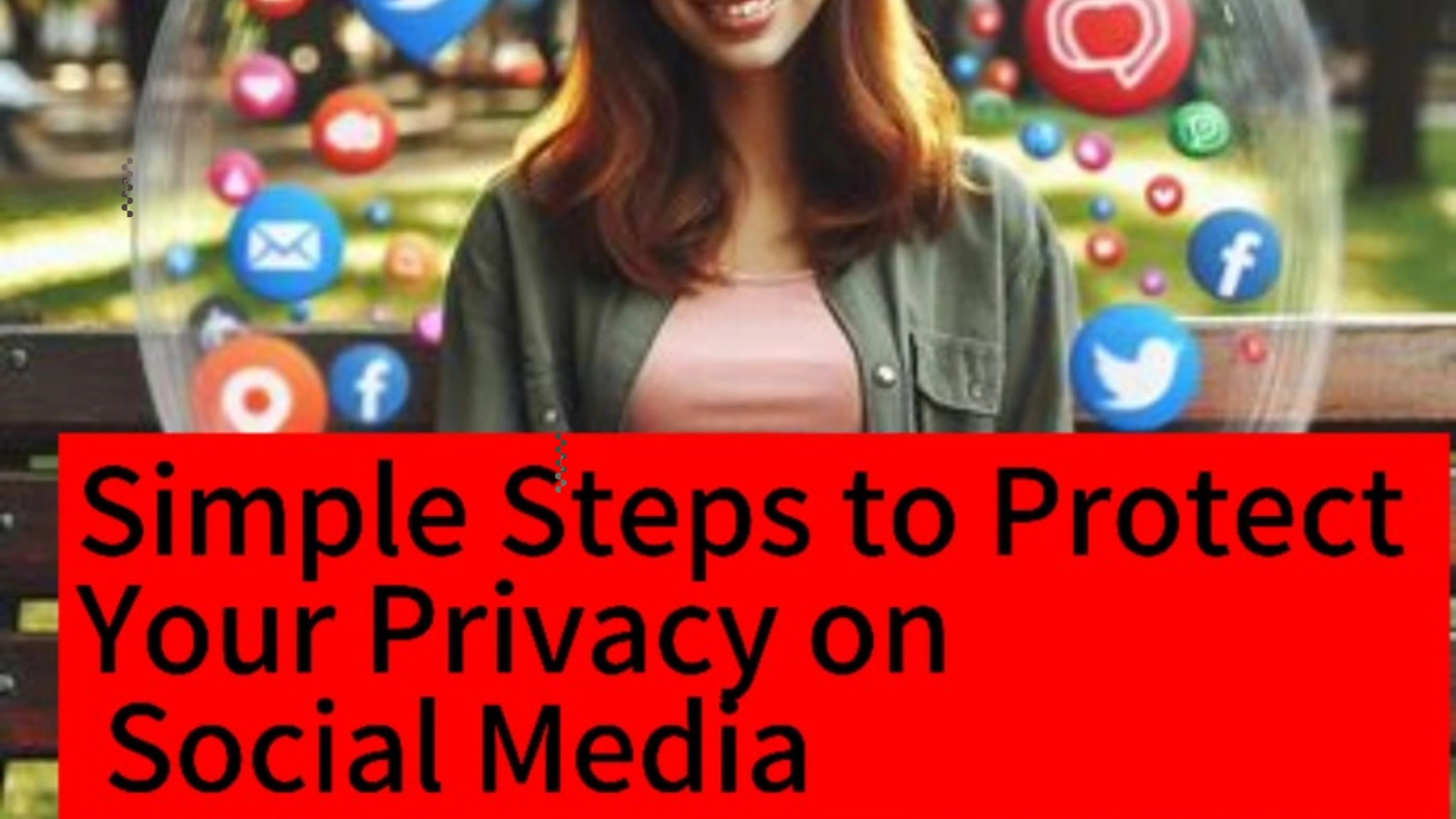With the constant sharing of personal information, it’s essential to take proactive steps to safeguard your online presence.
Cyber threats, data breaches, and identity theft are just a few of the risks that can compromise your privacy on social media platforms.

Simple Steps to Protect Your Privacy on Social Media
In today’s digital age, protecting your privacy on social media is more important than ever.
With personal information easily accessible and shared, it’s crucial to take steps to safeguard your data from hackers, cyber criminals, and even unwanted attention.
This guide will walk you through simple and effective ways to enhance your privacy settings and keep your online presence secure across various social media platforms.
In this guide, we’ll explore simple yet effective steps to help you protect your privacy on social media, ensuring that your personal information stays secure.
1. Review Privacy Settings Regularly
Most social media platforms provide privacy settings that allow you to control who can see your posts, contact you, and access your personal information.
Reviewing and updating these settings periodically is crucial for maintaining your privacy.
Tip:
Set your profile to private or limit the audience for your posts to only friends or close connections.
2. Use Strong, Unique Passwords
Using strong, unique passwords for each of your social media accounts is one of the most basic yet effective ways to protect your privacy on social media.
Avoid using easily guessable passwords like “123456” or “password.”
Tip:
Use a combination of uppercase and lowercase letters, numbers, and special characters.
Consider using a password manager to keep track of all your passwords securely.
3. Enable Two-Factor Authentication (2FA)
Two-factor authentication adds an extra layer of security to your accounts by requiring a second form of verification, such as a code sent to your phone.
This makes it harder for hackers to access your accounts even if they manage to steal your password.
4. Be Cautious of Sharing Personal Information
While it can be tempting to share details about your life on social media, avoid posting sensitive personal information such as your home address, phone number, or financial details.
Cyber criminals can use this information to commit fraud or steal your identity.
Tip:
Refrain from posting your location in real time, as it can expose you to physical risks.
5. Limit Third-Party App Access
Many social media platforms allow third-party apps to access your data.
While some apps are harmless, others can pose a security risk.
To protect your privacy on social media, limit or revoke access to unnecessary apps.
Tip:
Regularly review the list of apps that have access to your social media accounts and remove those you no longer use.
6. Avoid Phishing Scams
Phishing scams are a common way for hackers to trick you into giving up your login credentials or other sensitive information.
Be cautious of suspicious emails, messages, or links that ask for your personal information.
Tip:
Never click on links from unknown sources, and always verify the authenticity of the sender before taking any action.
7. Log Out When Not Using Accounts
Logging out of your social media accounts when you’re not using them is a simple yet often overlooked step to protect your privacy on social media.
This is especially important when using public or shared computers.
8. Use Secure Connections
When accessing social media, make sure you’re using a secure and encrypted connection, especially when connecting over public Wi-Fi.
A VPN (Virtual Private Network) is a great tool to protect your data when using unsecured networks.
9. Keep Your Software Updated
Ensure that the apps you use and the device’s operating system are always up to date.
Updates often include security patches that protect against vulnerabilities.
10. Monitor Your Online Presence
Regularly search for your name on search engines to see what information is publicly available.
This can help you identify any privacy concerns and take action to remove unwanted content.
FAQs on Simple Steps to Protect Your Privacy on Social Media
What are the key steps to protect your privacy on social media?
Key steps include reviewing privacy settings, using strong passwords, enabling two-factor authentication, and limiting the sharing of personal information.
How can third-party apps compromise my privacy?
Third-party apps may access your data without your knowledge, which can pose privacy risks. Regularly review and revoke access to apps you don’t use.
What should I do if I receive a suspicious link or message on social media?
If you receive a suspicious message or link, avoid clicking on it. Verify the sender’s identity, and report phishing attempts to the platform.
Is using public Wi-Fi safe for accessing social media?
Public Wi-Fi is not secure. To protect your privacy, use a VPN or avoid logging into sensitive accounts on public networks.
Why is it important to use two-factor authentication?
Two-factor authentication adds an additional layer of security, making it harder for hackers to access your account even if they have your password.
Conclusion
Protecting your privacy on social media is an ongoing process that requires attention and awareness.
By regularly reviewing your privacy settings, using strong passwords, enabling two-factor authentication, and being mindful of the information you share, you can significantly enhance your online security.
Taking these simple steps can help you enjoy social media while keeping your personal data safe from prying eyes.
 PrimeGate Digital is a Result Driven Blog that strives to go beyond ‘Conventional Digital Marketing’ through digital innovation and performance marketing. We have experience working with world class brands and products.
PrimeGate Digital is a Result Driven Blog that strives to go beyond ‘Conventional Digital Marketing’ through digital innovation and performance marketing. We have experience working with world class brands and products.
